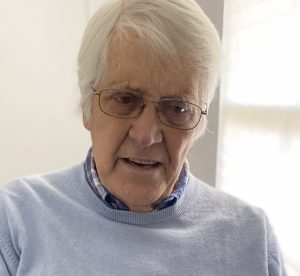Funding is Fundamental
August 6, 2021 By Merlyn Karst
By Merlyn Karst
President, The Purpose of Recovery
karstmj@gmail.com
Infrastructure is in the news. It’s about what it is and how to fund it. It appears there is some agreement on “hard” infrastructure spending. There are two matters of infrastructure under consideration. One is physical which we know as roads, bridges, transmission lines, etc. I read a statement that said, “infrastructure refers to any facility we expect but do not think about—we take it for granted—because it works for us in the background. “I might add to this—until it doesn’t. The other, social infrastructure covers a range of services and facilities that meet local and strategic needs and contribute towards a good quality of life. It includes health provision, education, community resources, etc. Important to all is the human component—knowledge, skills and abilities. All need funding and it is hard to understand the computations in trillions and billions.
In a blog from July 2018, I wrote these words. The roads we had traveled, and the journey of hopelessness was non-directional, filled with ruts, detours, and potholes. We faced barriers to progress because of stigma and discrimination. Our new roads and bridges led to help, hope, and healing with a positive view that we could change America’s conversation and its experience with addiction. I use some of this infrastructure language to relate to the broad issues of overcoming substance use disorders and associate mental health issues. What are the many roads to recovery, which bridges do we cross and which ones do we burn, how do we transmit the messages and provide the knowledge, skills, and abilities to attain and sustain active recovery. How do we provide the assurance and evidence to potential funding sources that our recovery organizations can best serve these public needs efficiently, economically, and with positive results? We have opportunities for funding through actions by congress to provide for an investment in recovery support on a scale never before seen.
The Comprehensive Addiction & Recovery Act (CARA) became law on July 22, 2016. CARA’s evidence-based programs have received strong federal investment. CARA 3.0 builds on the original CARA and CARA 2.0 by increasing funding for prevention, education, treatment, and recovery. Coupled with policy changes to strengthen the federal government’s response to the ongoing crisis, CARA 3.0 authorizes $785 million in dedicated resources to evidence-based prevention, enforcement, treatment, criminal justice, and recovery.
$200 million would build a national infrastructure for recovery support services to help individuals move successfully from treatment into long-term recovery. Creating this national infrastructure would build connections between recovery support services and networks, including treatment programs, mental health providers, treatment systems, and other recovery supports. Funds may also be used on efforts to reduce stigma associated with substance use; to develop recovery wellness plans that address barriers to recovery, including social determinants of health; and to use telehealth to support recovery in rural and underserved areas.
Another $50 million is authorized in grants for peer recovery services to provide continuing care and ongoing community support for individuals to maintain their recovery. These organizations are nonprofits that mobilize resources within and outside the recovery community to increase long-term recovery and that are wholly or principally governed by people in recovery who reflect the community served. Notably it is coupled with $55 million for training and employment for substance abuse professionals, including peer recovery specialists. $300 million to expand evidence-based medically assisted recovery (MAR), and $30 million for deflection and pre-arrest diversion programs in the criminal justice system. There is much more. Just google CARA 3 legislation.
The title of this piece is Funding is Fundamental. The word fundamental has Latin origin and means foundation. In other words, the thing that is built upon. Over time, Faces and Voices and the RCOs have been building to better serve and is continuing to build forward better. We have done it efficiently, economically, and with data supported evidence of success in showing the reality of recovery. Note that funding will have new emphasis on old words, like access, under-served individuals and communities, diversity, and equity. The Office of National Drug Control Policy (ONDCP) is focused on advancing racial equity issues in the approach to drug policy. It is seeking input on how our future proposed policies, budgets, regulations, grants, or programs might be more effective in advancing equity.
There is an old saying “follow the money” I suggest that we don’t just follow it but help direct its destination. We might usurp the intention of the serenity prayer. The purpose would be to give courage to those reluctant to change perspective, accept the challenge of grant applications, and grant us the wisdom to obtain grants. It suggests to me that though blogging is useful, one might apply the writing skills to grant writing.
 JOIN THE DISCUSSION
JOIN THE DISCUSSION
Add your thoughts about Funding is Fundamental by submitting your comments in the reply box below. All comments are moderated prior to being posted on the web site. Thank you.
ABOUT THE PURPOSE OF RECOVERY
 The Purpose of Recovery is a nonprofit, grassroots, peer-led recovery community in Orange County, CA. They connect with local, state, and national recovery communities to support long term recovery.
The Purpose of Recovery is a nonprofit, grassroots, peer-led recovery community in Orange County, CA. They connect with local, state, and national recovery communities to support long term recovery.
The Purpose of Recovery offers peer-to-peer support. Whether you are an individual in recovery from substance use disorder, a parent, partner, or concerned friend you will find peers who understand the unique challenges you face.
Learn more at https://thepurposeofrecovery.org/.

ABOUT THE AUTHOR
Merlyn Karst is a person in long-term recovery and a recovery advocate and Recovery Ambassador. He is a founder of Advocates for Recovery—Colorado and The Purpose of Recovery, California. Also, one of the founders of Faces and Voices of recovery. He is a writer and speaker about social issues surrounding the inappropriate use of alcohol and other drugs leading to substance use disorders, a mental health issue. He is particularly attentive to Peer driven support and services and their societal and economic benefits. They also provide reason and resources to reduce recidivism.
SUBMIT A GUEST BLOG
Are you interested in writing a guest blog for The Recovery Word? Click here for additional information.
